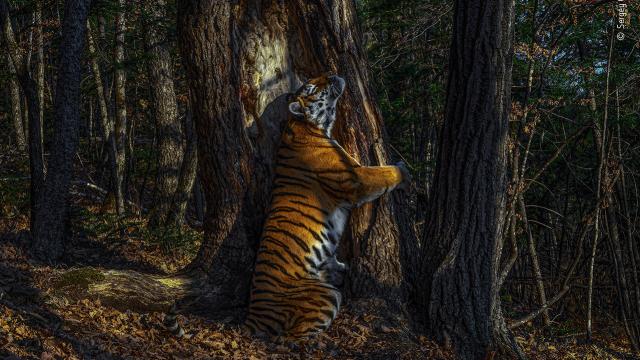On Tuesday, the Duchess of Cambridge Kate Middleton announced the winners of the 2020 prestigious Wildlife Photographer of the Year competition. It was the Natural History Museum in London’s 56th time holding the annual contest, which shows the world’s best snapshots of nature and wildlife. The winners in years past have all been stunners and this year’s winners are no different.
The winners were selected from more than 49,000 entries from all over the world, meaning we’re really getting the creme de la creme here. Check out some of this year’s top picks. Or is it…top pics? (Sorry.)
The Embrace
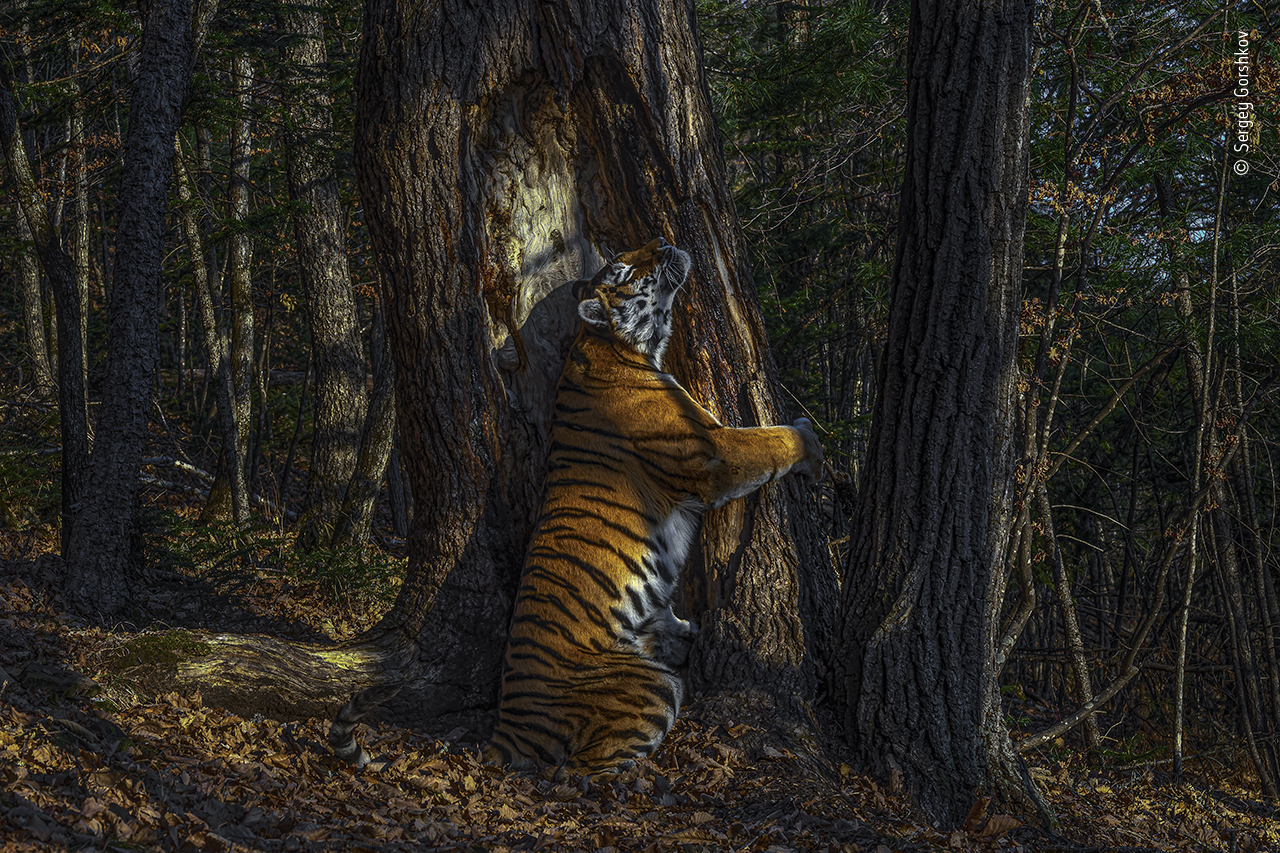
This photo, titled “The Embrace,” was this year’s Grand Title winner and it really makes me want to get a house cat. It shows an Amur (or Siberian) tigress wrapping its front legs around an ancient Manchurian fir in far-eastern Russia, which is the only place that the rare species can be found. The photographer, Sergey Goshkov, captured this moment after spending more than 11 months watching his hidden cameras throughout the region.
“Hunted to the verge of extinction in the past century, the Amur population is still threatened by poaching and logging today,” Tim Littlewood, the Natural History Museum’s executive director of science and jury member, said in a statement. “The remarkable sight of the tigress immersed in her natural environment offers us hope, as recent reports suggest numbers are growing from dedicated conservation efforts.”
The Fox That Got the Goose
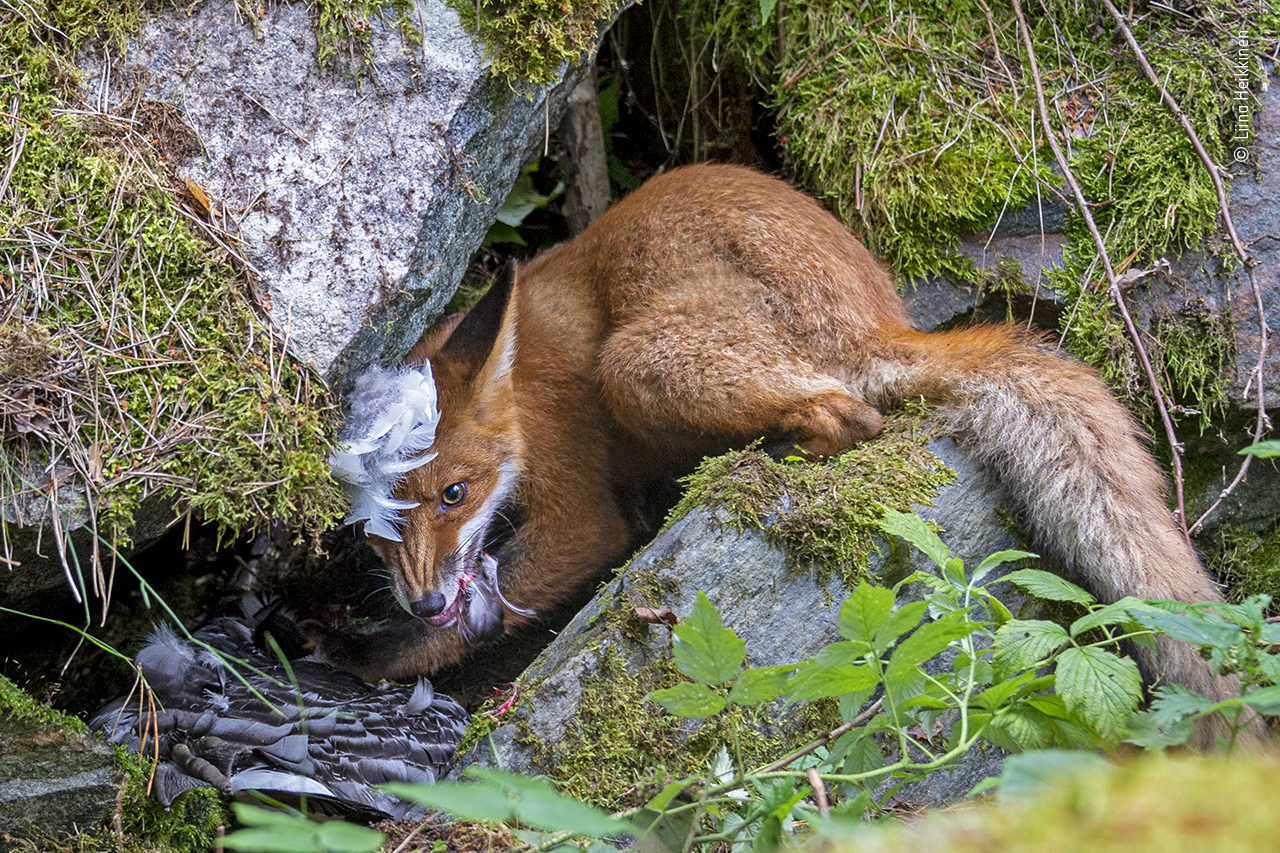
This picture was taken by Liina Heikkinen, and it won her the distinction of Grand Title Young Wildlife Photographer of the Year. Heikkinen is only 16 years old. Like the Finnish photographer, the fox in the image, titled “The Fox That Got the Goose,” is young. Check out that bushy tail. The unfortunate goose that got got is a barnacle goose.
This isn’t Heikkinen’s first photographic rodeo. She previously won runner-up in the Natural History Museum’s 2012 competition in the category for kids 10 years old and younger, when she was only nine. Nine! She’s doing this to make me feel inadequate at 27 years old, I know it!
Perfect Balance
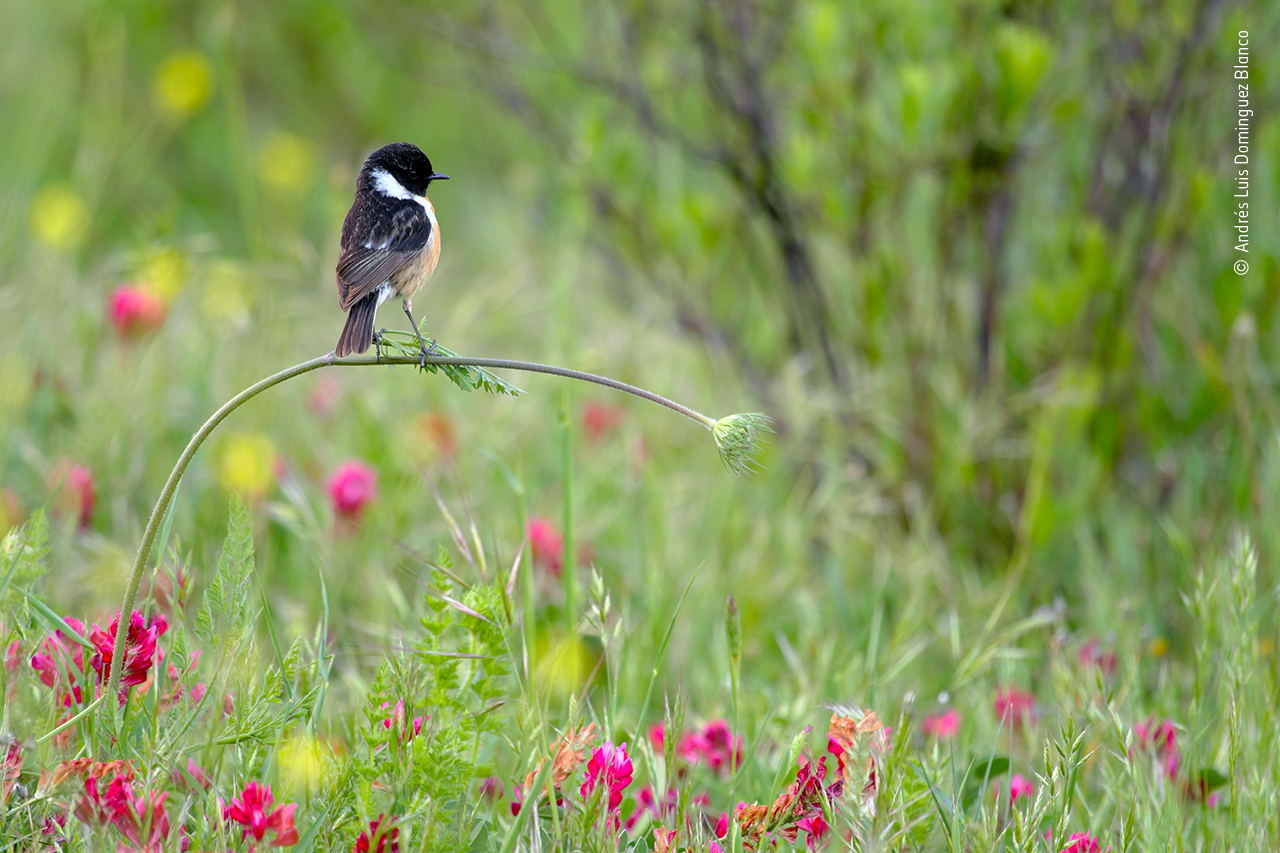
This one’s my favourite so far, and it was taken by a literal child. The photo, “Perfect Balance,” was taken by photographer Andrés Luis Dominguez Blanco, and it’s this year’s winner for the 10 Years And Under category. So amazing.
The fluffy little guy in the picture is a European stonechat, and he’s standing among some flowers — sweet-scented sulla vetches, to be specific. The young photographer snapped this photo in the meadows near his home in Ubrique, Andalusia, Spain. It was late in the day, and the sun’s low light illuminated the bird’s rich coat.
Great Crested Sunrise
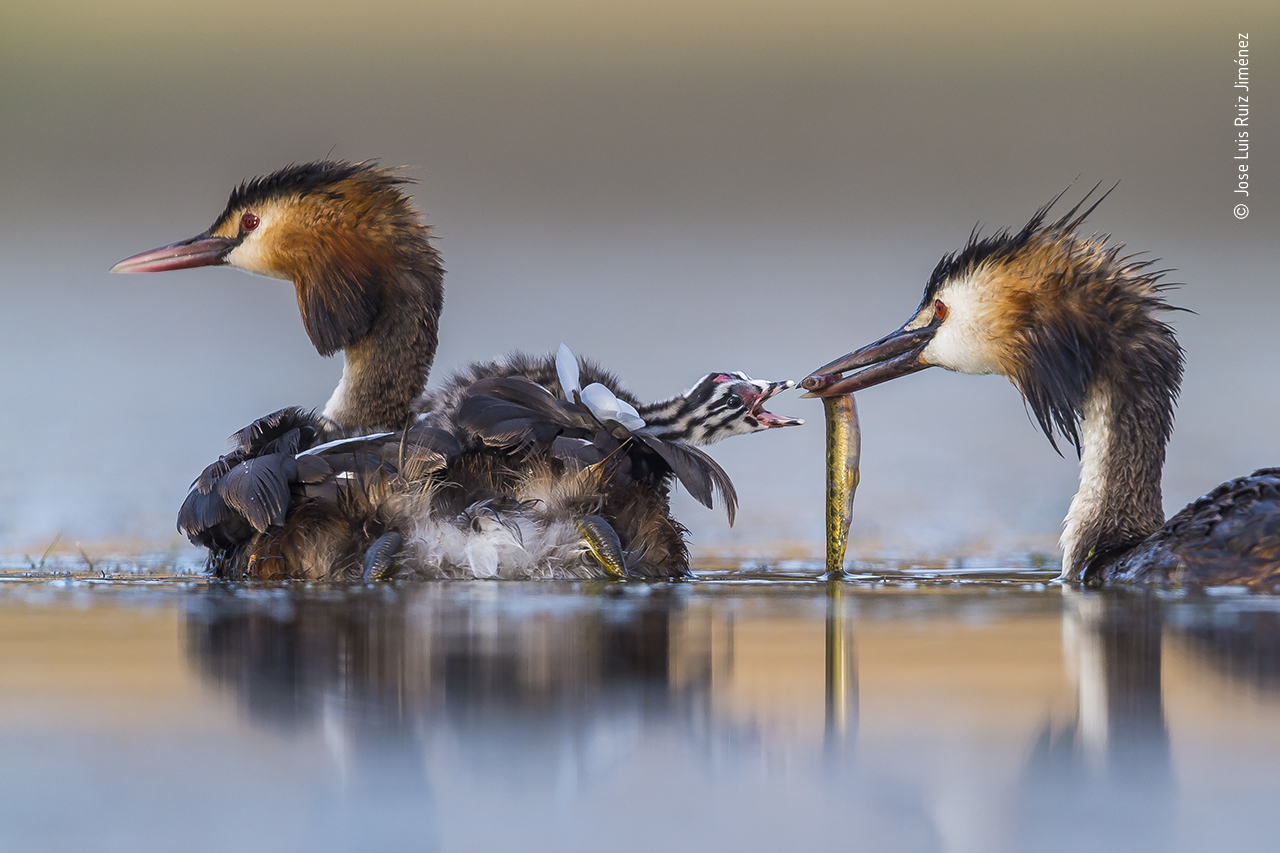
Here’s another incredible bird picture from Spain. This one, “Great Crested Sunrise,” was taken by Jose Luis Ruiz Jiménez, and it won the top spot in the Bird Behaviour category. It shows a great crested grebe couple feeding their young. The photo was taken during the creatures’ breeding season, when they look most striking. You can see their ornate plumage, spiky tufts of black down on their heads, fanned-out neck feathers, and hauntingly red eyes. And look at that little baby’s stripey head!
Ruiz Jiménez captured the picture after spending several hours up to his chest in water in a lagoon in west Spain, near small town of Brozas. He floated his camera on a U-shaped platform underneath a small camouflaged tent, and ducked his head under the platform, too. Bonus points for commitment, my dude.
A Tale of Two Wasps
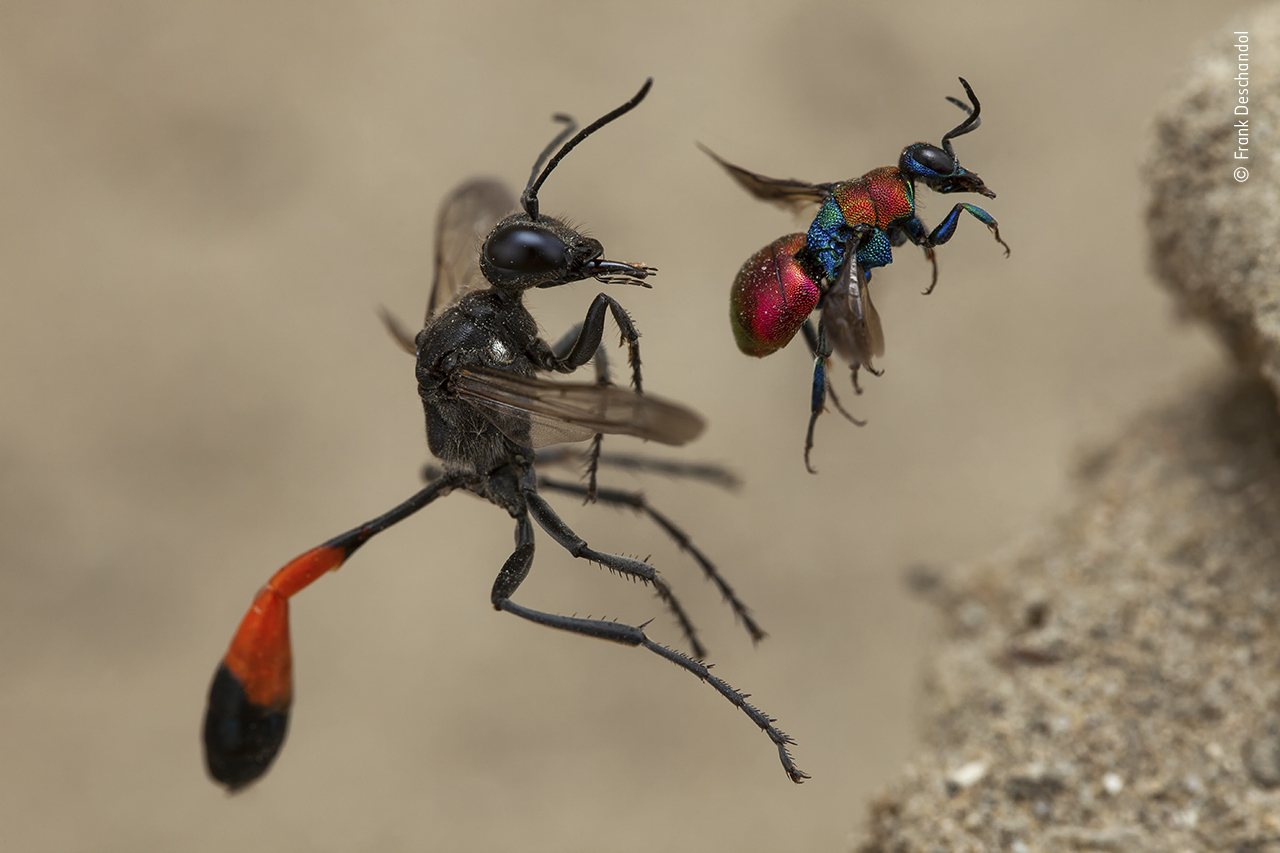
This one honestly freaks me out. It’s called “A Tale of Two Wasps,” for pretty obvious reasons. And it won French photographer Frank Deschandol the top award in the Invertebrates Behaviour category.
The wasps in the picture are a red-banded sand wasp on the left and a cuckoo wasp on the right. The two are just about to enter the holes they prepared to nest in. As someone who is generally creeped out by leggy bugs, I can at least appreciate the brilliant colours on both wasps. OK, Frank, I see you.
When Mother Says Run
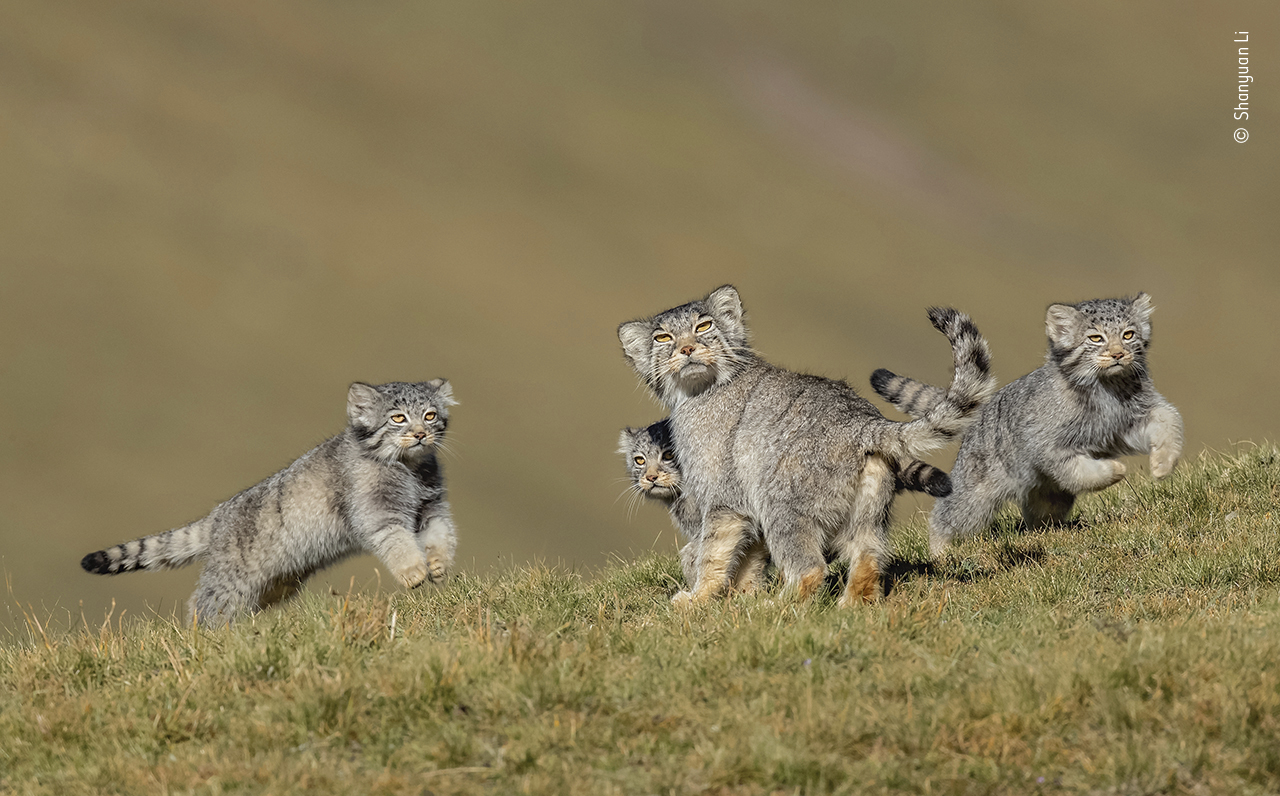
Back to the cute stuff. Here’s the judge’s top choice in the Mammals Behaviour category. It’s called “When Mother Says Run,” by Shanyuan Li, a Chinese photographer. Li’s shot offers a rare glimpse at a family of young Pallas’ cats, or manuls, on the steppes of the Qinghai–Tibet Plateau in northwest China. It didn’t come easy, either. He spent six years working in high altitudes taking pictures of the animals to get it.
Pallas’ cats are notoriously hard to find since they’re very solitary, mostly active at the ungodly hours of dusk and dawn, and sadly, are also under threat due to the degradation of the steppe grassland from mining and overgrazing. Li tracked a family of kitties for more than 3 km while they were in search of food on the steppe. He eventually hid out on a hill across from their lair until this moment when the kittens came out to play.
The Golden Moment
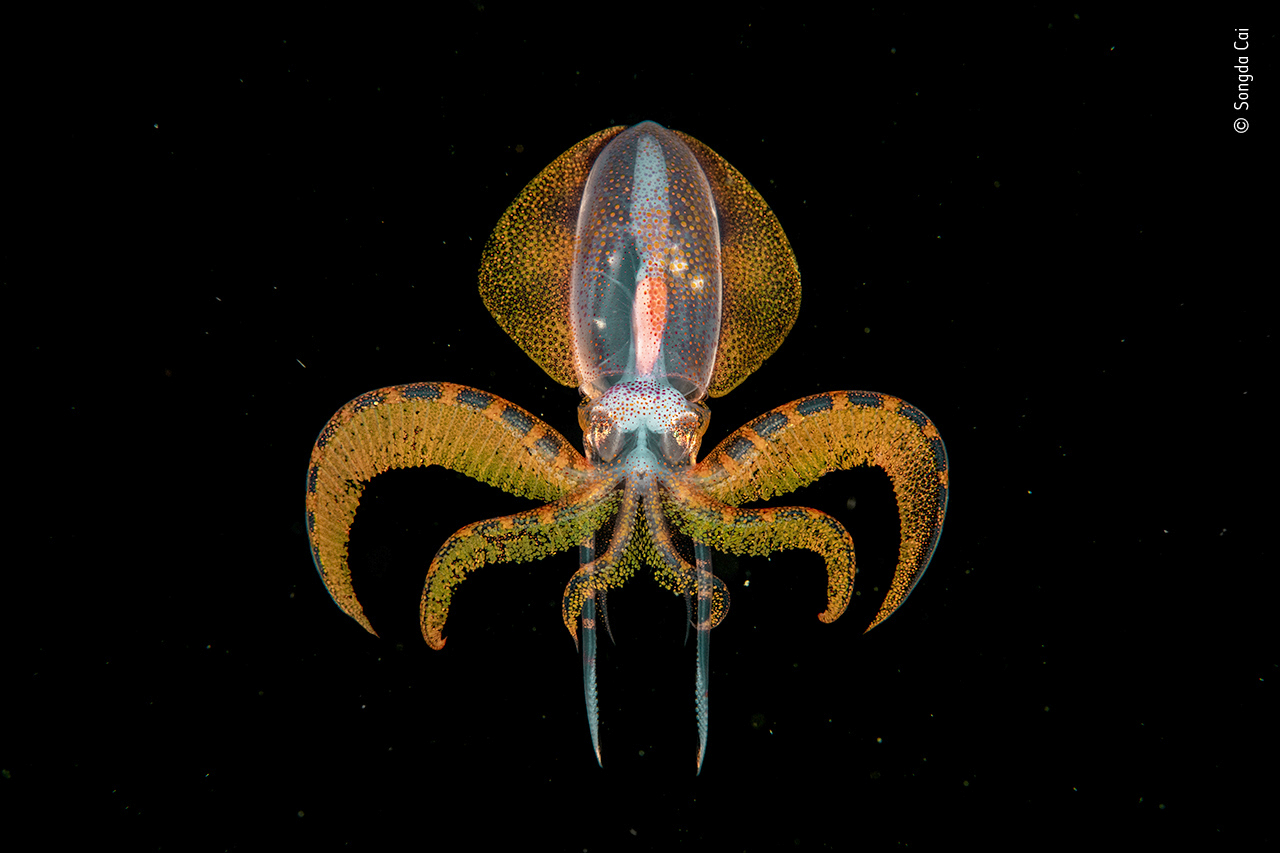
Weird one! The winner of the Underwater category is “The Golden Moment” by Songda Cai from China. You can’t tell from the photo, but the creature in the picture — a diamondback squid paralarva — is pretty tiny. It comes in at just 2.5 inches (6 to 7 centimeters) long. Cai captured the photo when he was on a nighttime dive in the deep water far off the coast of Anilao in the Philippines. A paralarva is an early stage in squid development between hatchling and subadult phases of life, and this one flitted into the light that the photographer was using to find his way around the water.
Incredibly, this one, though small, is already recognisable as a squid. This creature will stay transparent into adulthood, as all diamondback squids do. Those bright, glowing orange bits are elastic sacs of pigment under its skin.
Watching You Watching Them
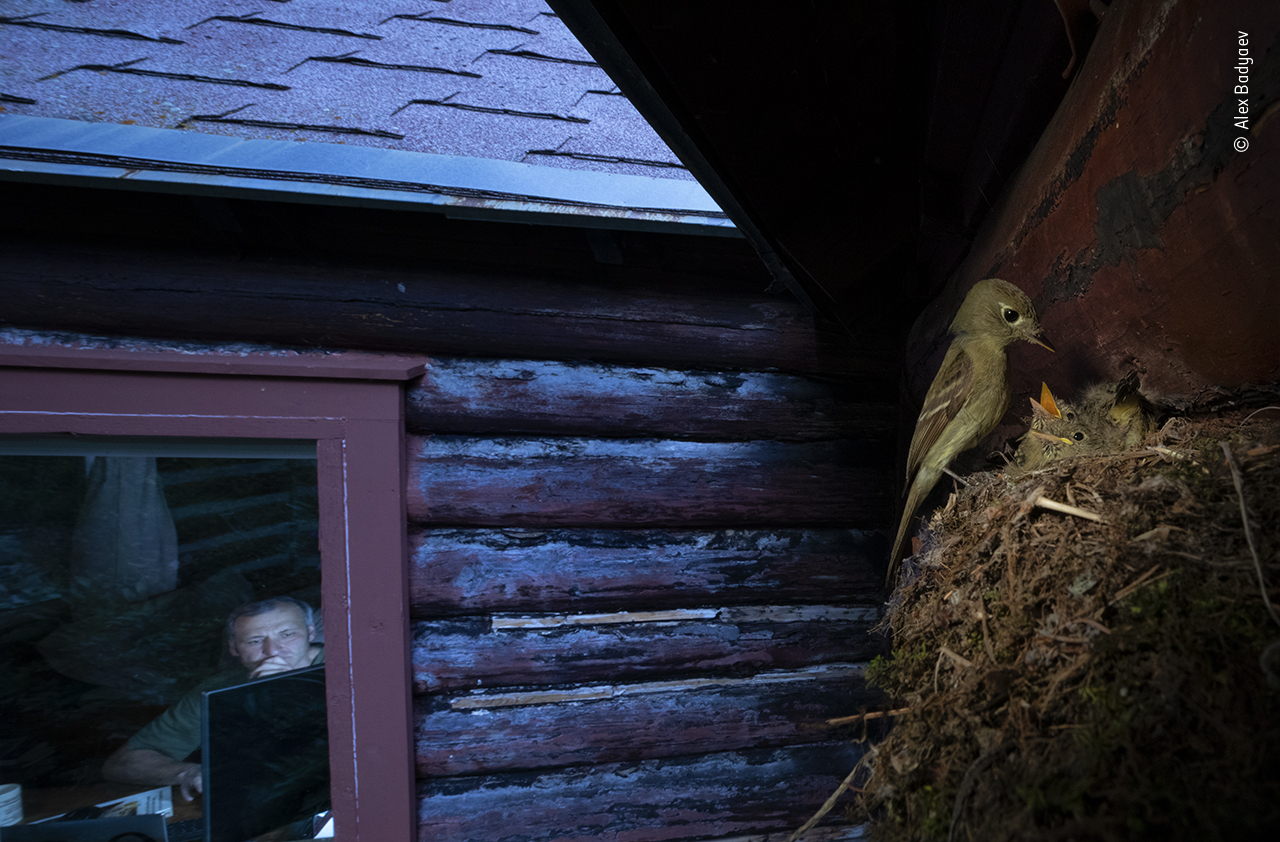
The thing about birdwatching is that it goes both ways, and that’s what this shot by Russian-American photographer Alex Badyaev captures. Look at that bird’s eye on him! This picture won the Urban Wildlife category.
Badyaev took this picture of a Cordilleran flycatcher in Montana’s Rocky Mountain Front, where he was working to observe the birds with a biologist who you can see in the back of the frame. The species shown in the picture is declining across western North America due to climate-induced changes in its habitat. Save the birds so we can see more pictures like this.
The Pose
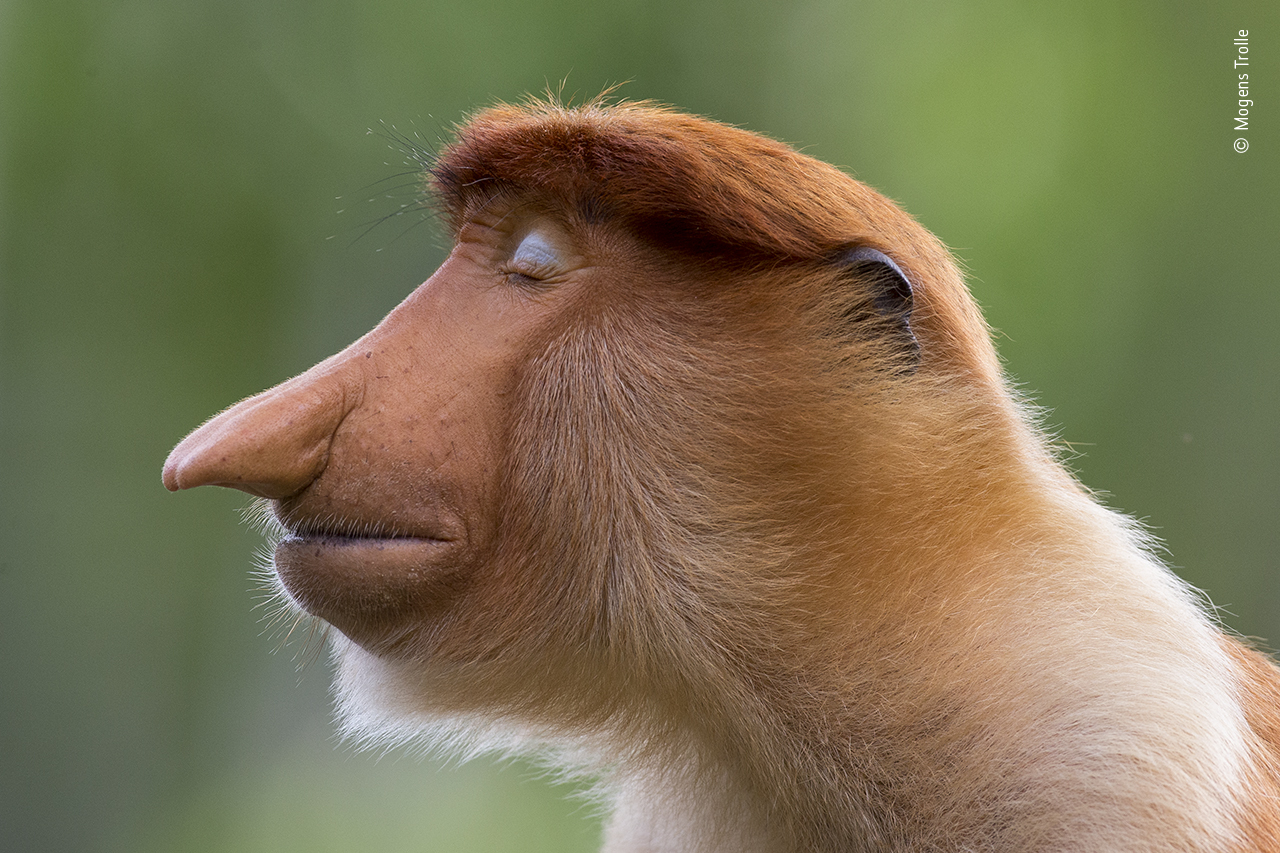
Omgomgomg. This is the one for me, y’all. I get the sense that this monkey doesn’t care about bad tweets or migraines or global interlocking crises or any of the other things that have had me stressed this week. I want to be this monkey.
This photo is called “The Pose,” and it’s by Danish photographer Mogens Trolle. It shows a young male proboscis monkey at a feeding station at Labuk Bay Proboscis Monkey Sanctuary in Sabah, Borneo. His strange pale blue eyelids are giving him a serious 1990s frosty eye makeup vibes and his chilled-out demeanour make it look like he’s meditating. In a statement, Trolle — who has been photographing primates for for five years — called him “the most laid-back character.” Strong agree.
